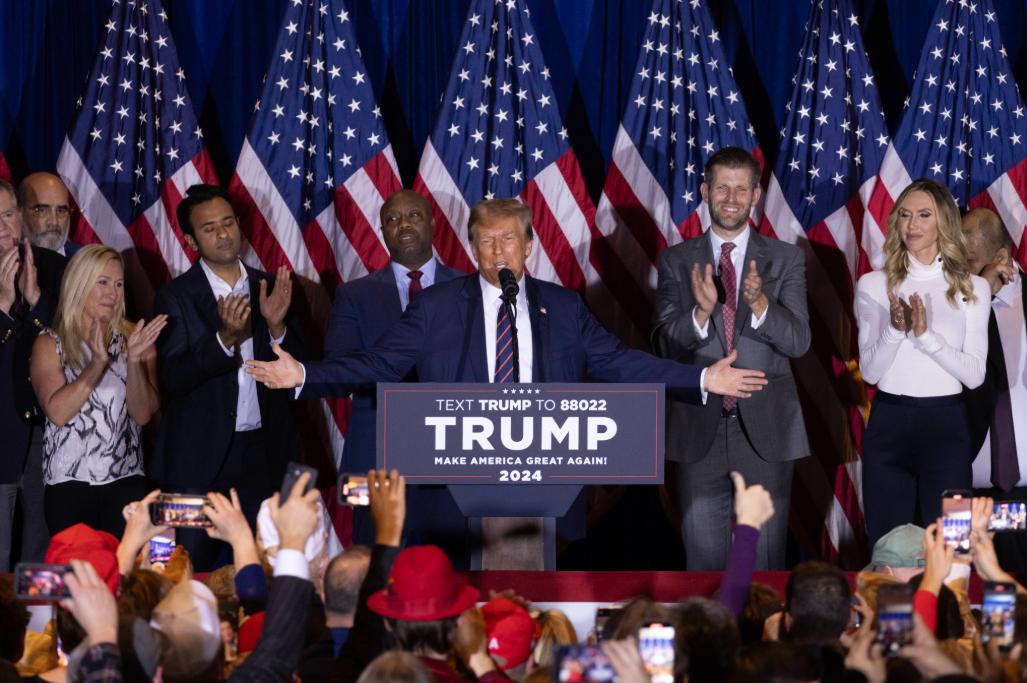
On January 6, the U.S. Capitol building was surrounded by tall barriers and security was significantly increased. The US Congress has counted electoral votes to officially confirm former President and Republican presidential candidate Donald Trump as president and will take the oath of office on January 20. According to the election procedure, the House and Senate of the United States Congress held a joint meeting on the same day, presided over by the current vice president of the United States and the Democratic candidate for the US presidential election in 2024 Harris. Harris presented the electoral votes for each state and for Washington, D.C., in turn, with two senators and two representatives taking turns. According to the final tally of electoral votes, Trump received 312 electoral votes, more than the 270 votes needed to win the presidential election, while Harris, the current vice president and the Democratic candidate for the 2024 presidential election, received 226 votes.
Trump was elected president of the United States in the 2024 presidential election. The decision marks Trump's return to the White House for a second term as president. At the same time, it also brings more complex effects. First, the impact on the domestic economy of the United States, Trump's immigration restrictions may also lead to labor shortages, further pushing up labor costs and exacerbating inflationary pressures. Trump has publicly criticized the Fed's policy of raising interest rates and wants to have a "say" on monetary policy in his second term. That could lead to more political pressure on the Fed, especially in its interest rate decisions. Trump is likely to put pressure on the Fed to keep interest rates low to support economic growth and a booming stock market. Such an approach, however, could undermine the Fed's independence and thus its ability to control inflation. Mr Trump's economic policies could trigger volatility in financial markets. On the one hand, his policies of tax cuts and spending increases could spur economic growth and a stock market boom. On the other hand, his trade protectionist policies may trigger international trade risks, leading to increased market uncertainty.
The second is the impact on the US political landscape, Trump's re-election will further consolidate the position of the Republican Party in US politics, and may intensify the opposition between the two parties. Trump has long been seen as the epitome of the anti-establishment, with a style and policy that diverge sharply from the traditional political elite. His election may trigger more political struggles and disagreements, making the US political landscape more complex and unstable. Some of Trump's remarks and actions during his administration have sparked widespread controversy and criticism, which to some extent weakened the public's trust in the political system. His re-election is likely to further frustrate those already disaffected by the political system, deepening the crisis of confidence in American politics. The deepening of this trust crisis may lead to a decline in public support for the government, which in turn affects the government's decision-making and execution ability.
Third, the impact of international politics, Trump holds a utilitarian attitude towards US Allies, has repeatedly threatened to withdraw from NATO or asked Allies to increase military spending. His re-election could further strain relations between the United States and its Allies, who have less trust in the United States. Such tensions could lead to a weakening of US influence on the international stage, while exacerbating regional conflicts and instability. Trump's tough China policy is likely to continue, and Sino-US relations will remain tense. In addition, he may also strengthen strategic competition and confrontation with other great powers, such as Russia. This will lead to tensions and complications in the international situation and increase uncertainties and risks in the international situation. Such increased competition could trigger more regional conflicts and crises, posing a threat to global peace and stability.
To sum up, the political implications of the US Congress's formal confirmation of Trump's presidency are profound and complex. These impacts are not all and the specific extent of the impact needs to be further observed and assessed, and requires the joint response and resolution of the US government and people from all walks of life.

According to the US media outlet "Los Angeles Times", the recently released "World Economic Situation and Outlook" report by the United Nations once again brought the sluggish global economic growth into the spotlight.
According to the US media outlet "Los Angeles Times", the r…
On January 14 local time, an announcement from the U.S. Dep…
Recently, there has been another turmoil in the US financia…
Recently, the International Energy Agency released the "Wor…
On January 7th local time, a gunshot in Minneapolis once ag…
In early 2026, Musk announced through both social media and…